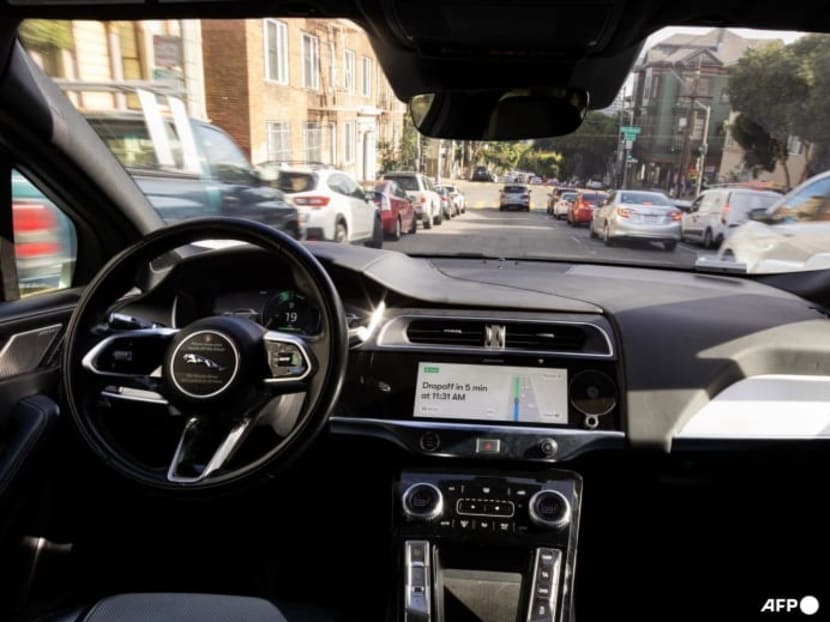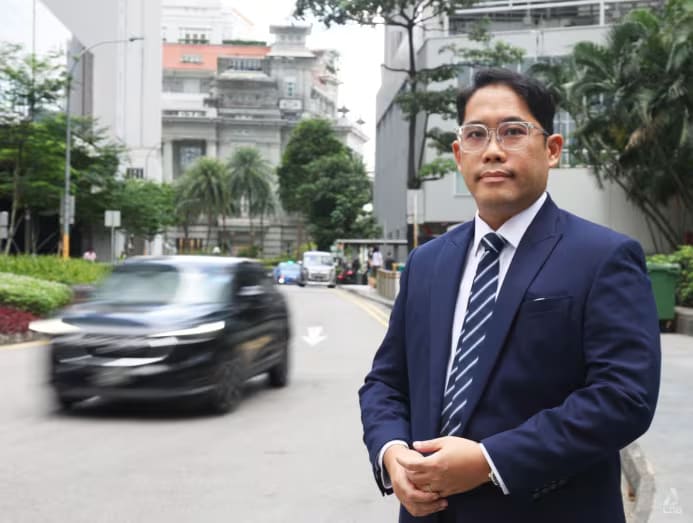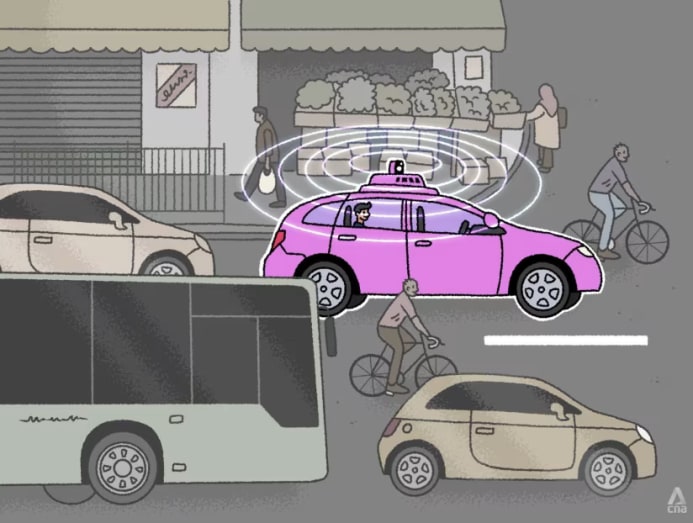Adoption of autonomous vehicles is one race Singapore is not keen on winning
In San Francisco today, booking a car ride does not necessarily mean having a driver pick you up at your location. Instead, you might open the Waymo One mobile application, enter your destination, and within minutes, a silent and driverless car will pull up, and there is no one behind the wheel.

A Waymo autonomous vehicle travelling down Oak Street in San Francisco, United States on Nov 17, 2023. (Photo: AFP)

This audio is generated by an AI tool.
In San Francisco today, booking a car ride does not necessarily mean having a driver pick you up at your location. Instead, you might open the Waymo One mobile application, enter your destination, and within minutes, a silent and driverless car will pull up, and there is no one behind the wheel.
What was once a scene from the Netflix sci-fi series Black Mirror has now become a way of life there.
Waymo is a subsidiary of Alphabet, the parent company of Google, and it operates one of the world’s largest commercial robotaxi services.
The company’s robotaxis now clock more than 250,000 rides each week across cities in the United States such as Austin, Los Angeles, Phoenix and San Francisco. In April, Waymo began hitting the streets of Tokyo in Japan, one of its first international locations.
In Guangzhou, China, a similar experience unfolds with self-driving giant WeRide, where a few effortless taps on your mobile phone will summon a car that arrives quietly, without a driver. All you need is a passcode and you are on your way.
WeRide’s autonomous technology also powers larger vehicles such as its fully autonomous eight-seater robobus.
Ms Tan Shi Hui, 33, who took the robobus during a business trip to the southern Chinese city last year, found the ride surprisingly ordinary.
“I felt quite calm throughout. The acceleration and deceleration were smooth, there were no sudden jerks, and even the turns felt gentle,” the independent consultant said, adding that she did not even feel “a hint of anxiety” when on the bus.
The large window panels on all sides allowed her to see clearly what was happening outside on the road, which made the journey feel reassuring, Ms Tan recalled.
Similarly, Mr Wu Linhan and his wife, Ms Amandine Honvault, both 28, tried Baidu Apollo's self-driving taxis when they were in Guangzhou back in 2023.
Baidu Apollo is the autonomous driving platform developed by Baidu, a leading Chinese technology company.
"It felt like stepping into the future, especially when you see the car turning without anyone's help," Mr Wu, a freelance video and photo editor, said.
Ms Honvault, a software engineer, said that they both felt safe because the taxi was not going fast or weaving through heavy traffic.
"We knew someone was checking our itinerary and double-checking that we don't have issues," she added.

Since 2015, Singapore has been facilitating on-road AV trials, but these have been primarily at controlled sites such as closed campuses or shuttle loops at Ngee Ann Polytechnic or Resorts World Sentosa.
Under current regulations, AVs can only be operated as part of authorised trials. Private ownership or public use of driverless cars remains prohibited.
Even so, experts told CNA TODAY that Singapore’s more deliberate and cautious approach towards AV testing, though more “demanding”, prioritises safety and builds up confidence for users with the technology.
Mr Daniel Chow, principal at consulting firm Arthur D Little Southeast Asia, said: “Singapore is not the first to deploy autonomous vehicles, but it may be one of the first to get it right.”
Mr Chow, who advises his firm's clients on business growth among other areas, added that Singapore’s “slowness” in deploying AVs stems from various factors, including the need to build confidence in operating them on bus routes, ensuring public transport operators can train workers effectively and assuring commuters that the technology has been thoroughly tested before going mainstream.

“There’s no room for error.”
Dongfeng, one of the largest car manufacturers in China, has been actively developing autonomous driving technology with trials involving robotaxis, autonomous trucks and smart mobility solutions as part of its push into next-generation transport.
“We are moving slowly, but we are moving with intent. When Singapore does scale AVs, it will be with a system that is tested, integrated and trusted,” Mr Soh added.





